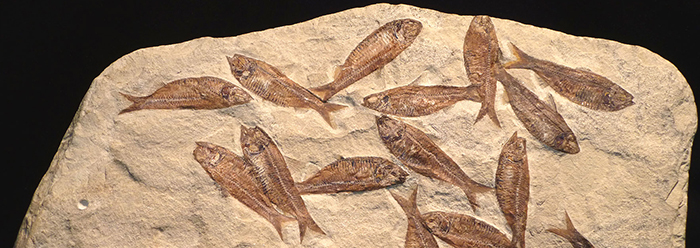Search Tools
New Defender's Study Bible Notes
3:14 cursed above all cattle. God’s Curse fell first on the Serpent, representing man’s great enemy, the devil, as a perpetual reminder to man of his fall. All other animals were also placed under the Curse, as part of man’s dominion, but the Serpent was cursed above all others, becoming a universal object of dread and loathing. Whatever may have been its original posture, it would henceforth glide on its belly, eating its prey directly off the ground, and covered with the dust of the earth.
3:15 enmity between thee. This verse is famous as the Protevangel (“first gospel”). The Curse was directed immediately towards the Serpent, but its real thrust was against the evil spirit possessing its body, “that old serpent, called the Devil” (Revelation 12:9). Satan may have assumed he had now won the allegiance of the woman and all her descendants, but God told him there would be enmity between him and the woman.
3:15 her seed. The “seed of the woman” can only be an allusion to a future descendant of Eve who would have no human father. Biologically, a woman produces no seed, and except in this case Biblical usage always speaks only of the seed of men. This promised Seed would, therefore, have to be miraculously implanted in the womb. In this way, He would not inherit the sin nature which would disqualify every son of Adam from becoming a Savior from sin. This prophecy thus clearly anticipates the future virgin birth of Christ.
3:15 bruise thy head. Satan will inflict a painful wound on the woman’s Seed, but Christ in turn will inflict a mortal wound on the Serpent, crushing his head. This prophecy was fulfilled in the first instance at the cross, but will culminate when the triumphant Christ casts Satan into the lake of fire (Revelation 20:10).
3:15 bruise his heel. This primeval prophecy made such a profound impression on Adam’s descendants that it was incorporated, with varying degrees of distortion and embellishment, in all the legends, mythologies and astrologies of the ancients, filled as they are with tales of mighty heroes engaged in life-and-death struggles with dragons and other monsters. Mankind, from the earliest ages, has recorded its hope that someday a Savior would come who would destroy the devil and reconcile man to God.
3:16 multiply thy sorrow. Had Eve not sinned, the experience of childbirth would have been easy and pleasant, like every other experience in the perfect world God had made. The Curse, however, fell in a peculiar way on Eve and her daughters, and the pain and sorrow of conception and birth would be greatly multiplied.
Nevertheless, the bearing of children, especially by a woman who loves God and seeks to obey Him, is a time of blessing and rejoicing even though accompanied by a time of suffering (John 16:21). In the experience of giving birth, every woman experiences by proxy, as it were, the privilege granted Mary when she became the mother of the promised Seed. Furthermore, she even becomes a type of Christ, who “shall see His seed...He shall see of the travail of His soul, and shall be satisfied” (Isaiah 53:10-11). The suffering is submerged in the rejoicing, and this in itself goes far toward mitigating the physical pain (note I Timothy 2:15).
3:16 rule over thee. She who had acted independently of her husband in her desire for the forbidden fruit must henceforth exercise her desires through her husband, and he would be ruler in the family. This prophecy has been fulfilled throughout history, in every time and nation.
To the woman who knows God, however, especially in the full light of Christianity, her role of submission to God and to her husband becomes her means of greatest fulfillment and happiness. The “rule” of a true Christian husband is not one of harshness and subjugation, but one of loving companionship and caring responsibility (Colossians 3:18-21; Ephesians 5:22-33; I Peter 3:1-7; etc.).
3:17 unto Adam. The full force of the Curse fell on Adam, as the responsible head of the human race, and on all his dominion. Instead of believing God’s Word, Adam had “hearkened to the voice of his wife,” and she had been beguiled by the voice of the serpent. It is always a fatal mistake to allow the words of any creature to take precedence over the Word of God.
3:17 cursed is the ground. The “ground” is the same word as “earth.” The very elements of matter, out of which all things had been made, were included in the Curse, so that the “whole creation” (Romans 8:22) was brought under bondage to a universal principle of “corruption” (literally “decay”–Romans 8:21). That is, all things had been built up by God from the basic elements of matter (“the dust of the earth”), but now they would all begin to decay back to the dust again. The curse evidently applies to the entire physical cosmos, as well as to the planet Earth, though it is possible that the decay principle operating in the stars and the other planets may relate also to the prior sin of the angelic “host of heaven.”
3:17 for thy sake. The curse was not only a punishment for man’s disobedience but also a provision for man’s good, forcing him to recognize the seriousness of his sin, to realize the folly of trusting anyone but his Creator, and his inability to save himself from destruction. This would encourage him to a state of true repentance toward God and to trust in God to save him. Analogously, the Second Law of Thermodynamics, which is the modern scientific statement of this decay principle (see notes on Genesis 1:1), though pointing toward an ultimate death of the universe, at the same time points back to a primeval creation and therefore compels men to look toward the Creator as its only possible Savior.











